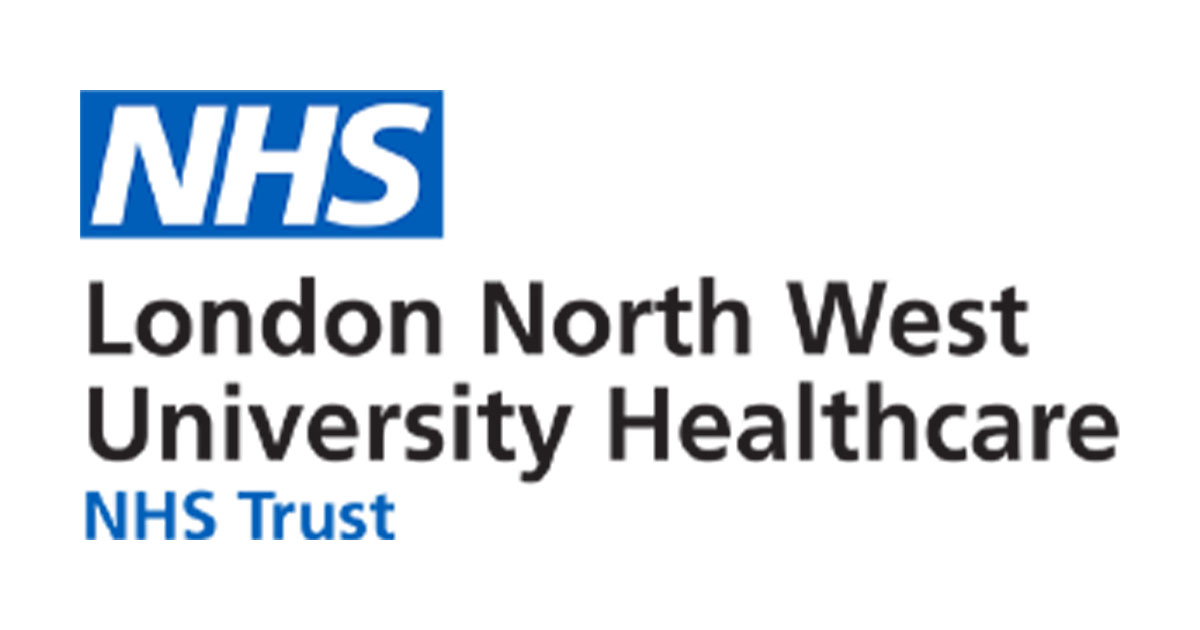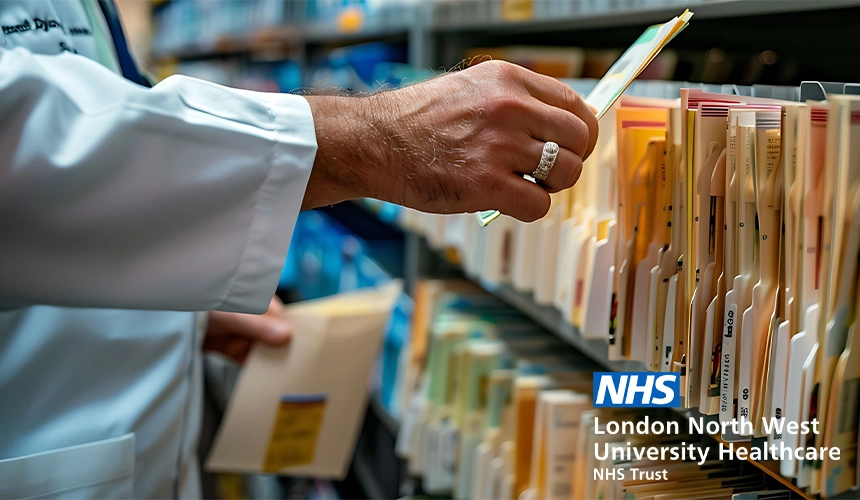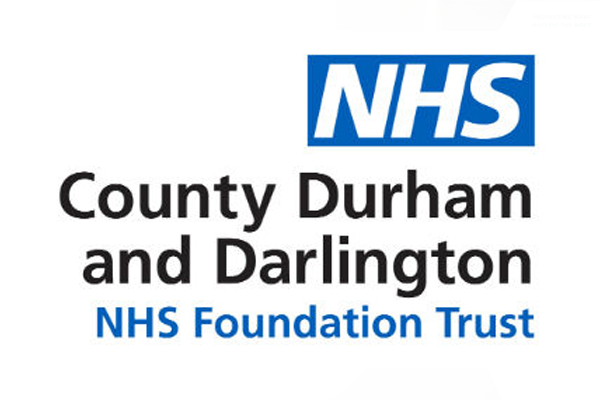
The customer
LNWH NHS Trust incorporates four London hospitals providing clinical, urgent and outpatient services, as well as 24/7 emergency care. In 2022-23 the Trust recorded over 800,000 outpatient attendances.

A planned move from paper to digital records became an urgent requirement when the pandemic hit in 2020.
Thousands of boxes of medical records were stored on-site at the Trust, creating issues including:
- Difficulty locating patient records quickly, leading to some appointment cancellations
- Vital space dedicated to storage instead of clinical care
- Staff time wasted managing access requests and searching through paper files
- Barriers to creating virtual outpatient clinics to provide care during the Covid pandemic
- Increased risk of contamination due to people moving records around hospitals

A major project was set in motion to digitise all active medical records, bringing together four partners: Restore Information Management, Mizaic (provider of patient management system MediViewer), digital healthcare consultancy Apira, and LNWH NHS Trust.
Clearing the backlog
Working in the challenging conditions of the pandemic, Restore Information Management set up a process to securely collect and scan the contents of one of four medical libraries at Northwick Park Hospital. As the extent of Covid’s impact became clear, the scope was widened to include the other medical libraries at the hospital, and at two other hospitals within the Trust; as well as notes of discharged patients and those on waiting lists.
Working six days a week at the peak of the programme, Restore Information Management committed 50 staff to scanning the backlog of medical records. Between May 2020 and October 2022, more than 38,000 boxes of active patient records were digitised and 16,000 boxes of inactive patient records were securely archived.
Setting up an in-house scanning facility
By January 2023, the majority of the medical libraries had been cleared, leaving room for the creation of a new aseptic unit (a facility used for the preparation of parenteral nutrition (IV) bags) and the addition of six treatment seats to its cancer unit.
To keep on top of digitisation on an ongoing basis, Restore Information Management designed the workflow for an in-house scanning facility at the Trust; sourced and installed equipment; trained staff who were successfully redeployed from previous roles; and supported the Trust to achieve BS 10008 certification within 5 months of launching the in-house operation.
For more detail about the end-to-end in-house digitisation and certification process at LNWH NHS Trust, read the full case study.

Restore Information Management drew on their experience working with 81% of NHS Trusts, to design and deliver a tailored solution to LNWH NHS Trust’s paper records challenge.
Benefits for LNWH include:
- 210,000 active records made available digitally, improving patient care: Restore Information Management scanned more than 50 million pages, speeding up clinician access to critical medical data
- 225,000 inactive records securely archived offsite: 16,000 boxes were collected and removed from hospitals for storage
- Former library space converted: previously outsourced parenteral nutrition (IV) bags can now be made in-house, satisfying 40-50% of the Trust’s requirement. Plans are in place to extend the aseptic manufacturing capacity for regional and national provision
- Additional capacity to provide chemotherapy: six treatment chairs added for cancer patients
- Improved quality control: documents can be checked in Restore Information Management’s EDMonline document management system
- Notes accessible immediately for urgent cases: clinicians can view files using the Mizaic MediViewr EDRMS
- Ongoing in-house scanning: digitisation was brought in-house to increase workflow control, save time, and support the Trust’s roadmap to sustainable, paperless operations
- £10m projected savings over five years: in costs, including space, consumables and courier expenditure







